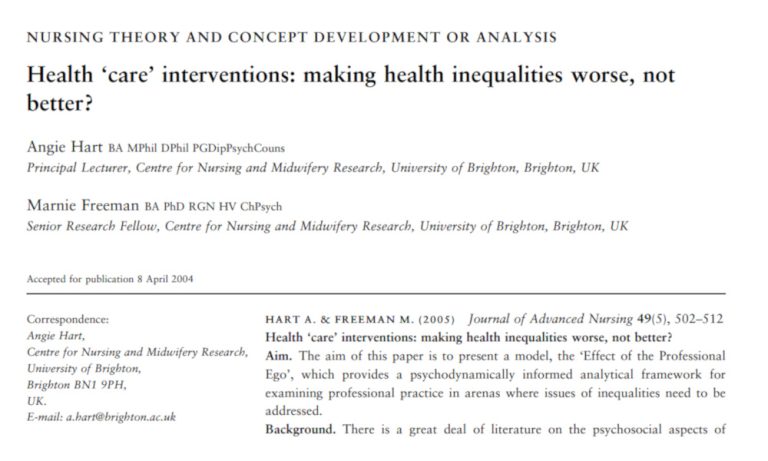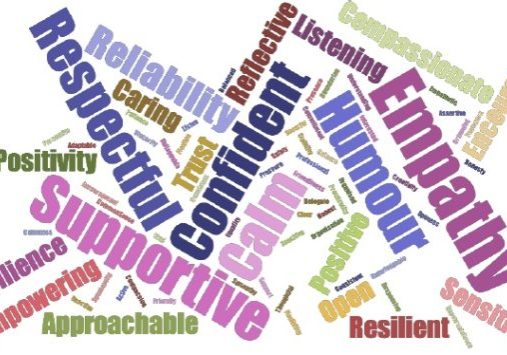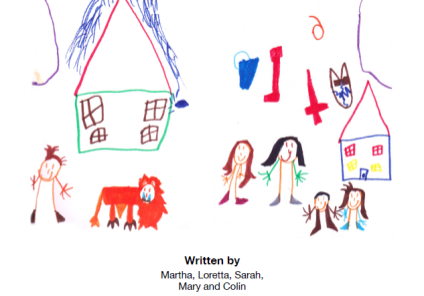Hart A. & Freeman M. (2005) Hart A. & Freeman M. (2005) Journal of Advanced Nursing 49(5), 502–512
Abstract
Aim. The aim of this paper is to present a model, the ‘Effect of the Professional Ego’, which provides a psychodynamically informed analytical framework for examining professional practice in arenas where issues of inequalities need to be addressed. Background. There is a great deal of literature on the psychosocial aspects of inequalities in health care provision. However, the impact of intrapsychic and professional cultural elements has not been explored in this context. Moreover, the body of work which does explore these elements in relation to health care workers does not address how they might impact on health inequalities. Discussion. Drawing on empirical work, we discuss ways in which intrapsychic and professional cultural elements feed into the dynamic between clients and health care professionals in a way which can subvert espoused, positive client health outcomes. Based on this discussion, we propose the Effect of the Professional Ego model, which identifies two main aspects of the professional ego – the grandiose self and self preservation – and how they influence the professional/client dynamic. Conclusion. Systematic self-reflection on the part of professionals would be a valuable contribution to the development of professional practice. This applies particularly to conceptualizing the links between the actions of service providers and the adverse health of clients.



